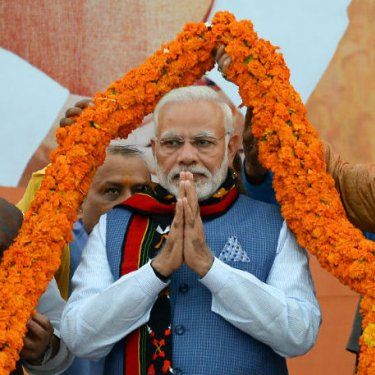India urged to put press freedom at centre of democratic debate

After the latest election victory by Prime Minister Narendra Modi’s party, this time in the small northeastern state of Tripura, where two journalists were killed in the space of two months last autumn, Reporters Without Borders (RSF) voices concern about press freedom in India and urges the prime minister to protect journalists and their work instead of disparaging them.
“The press freedom situation is worsening on many fronts in India, with unpunished murders of journalists, arbitrary detention, obstruction of reporters, and hostility from the authorities towards their critics,” said Daniel Bastard, the head of RSF’s Asia-Pacific desk.
“With a year to go to the next general elections, we urge the federal authorities to take concrete steps to end the growing harassment of news and information providers, which is encouraging self-censorship.”
Four journalists killed with impunity
India is one of the world’s deadliest countries for reporters, with at least ten murdered in connection with their work since the start of 2015, four of them in recent months. Acts of violence against journalists are on the rise but most of them go unpunished and the government is doing nothing to protect media personnel.
The victims include Gauri Lankesh, a newspaper editor who was well known for her criticism of Hindu nationalism and its leading exponent, the ruling Bharatiya Janata Party (BJP). A gunman shot her three times outside her home on 5 September 2017. The arrest of a suspect on 2 March has confirmed the link between her murder and the Hindu far-right movement.
Two journalists, Shantanu Bhowmick and Sudip Datta Bhaumik, were killed a few months apart in the state of Tripura, while Navin Gupta was gunned down in northern India in December without investigators being able to establish the motive for his murder.
Prime Minister Narendra Modi has said nothing about this surge in violence against journalists although he is very active on Twitter and has been much criticized for being a subscriber to the account of a nationalist who welcomed Lankesh’s murder.
Kashmir turning into a news black hole
Kamran Yousuf, a 23-year-old Kashmiri photojournalist, has been detained arbitrarily by the Indian authorities for the past six months. Charged with sedition, criminal conspiracy and attempting to wage war against India, this young reporter is facing the possibility of life imprisonment for trying to cover the conflict in the state of Jammu and Kashmir.
The persecution of Yousuf by the authorities – who say he is not a “real journalist” because he never covered “developmental activity” or the “inauguration of [a] hospital or school building” – clearly shows that they want to use him as an example to deter other Kashmiri reporters from covering the conflict.
The Indian authorities do their best to impose silence on the situation in the Indian-ruled part of Kashmir by frequently disconnecting the Internet, banning foreign journalists and harassing Kashmiri reporters.
Foreign reporters not welcome in India
Although Prime Minister Modi sang the praises of the Indian media and promised to continue “upholding the freedom of the press and expression in all forms” in November 2017, it is hard for foreign journalists to get visas that allow them to report in India.
The procedures and requirements for obtaining the “journalist” visa that all journalists need, even to visit India as tourists, are extremely demanding. Last month, for example, an Australian journalist with ABC, Amruta Slee, was asked, after a long wait, to provide a list of potential interviewees and even to have someone “accompany” her.
Paul Comiti, a 47-year-old French journalist and documentary filmmaker, was arrested in Srinagar, the capital of Jammu and Kashmir, last December and was charged with violating visa regulations because he entered India on a business visa, which he requested as a producer, instead of a journalist visa.
Foreign journalists whose reporting on India is regarded as “negative” or “hostile” are banned outright from entering the country.
Hostile prime minister
Prime Minister Modi prefers Twitter to press conferences for making his views known. Since his election in 2014, the BJP leader has kept his distance from the Indian media and, unlike all his predecessors, has given no press conferences.
He uses social networks – on which he is supported by an army of Internet users who harass and threaten critical journalists with complete impunity – and has given interviews to just a handful of pro-government media outlets.
India is ranked 136th out of 180 countries in RSF's 2017 World Press Freedom Index.



